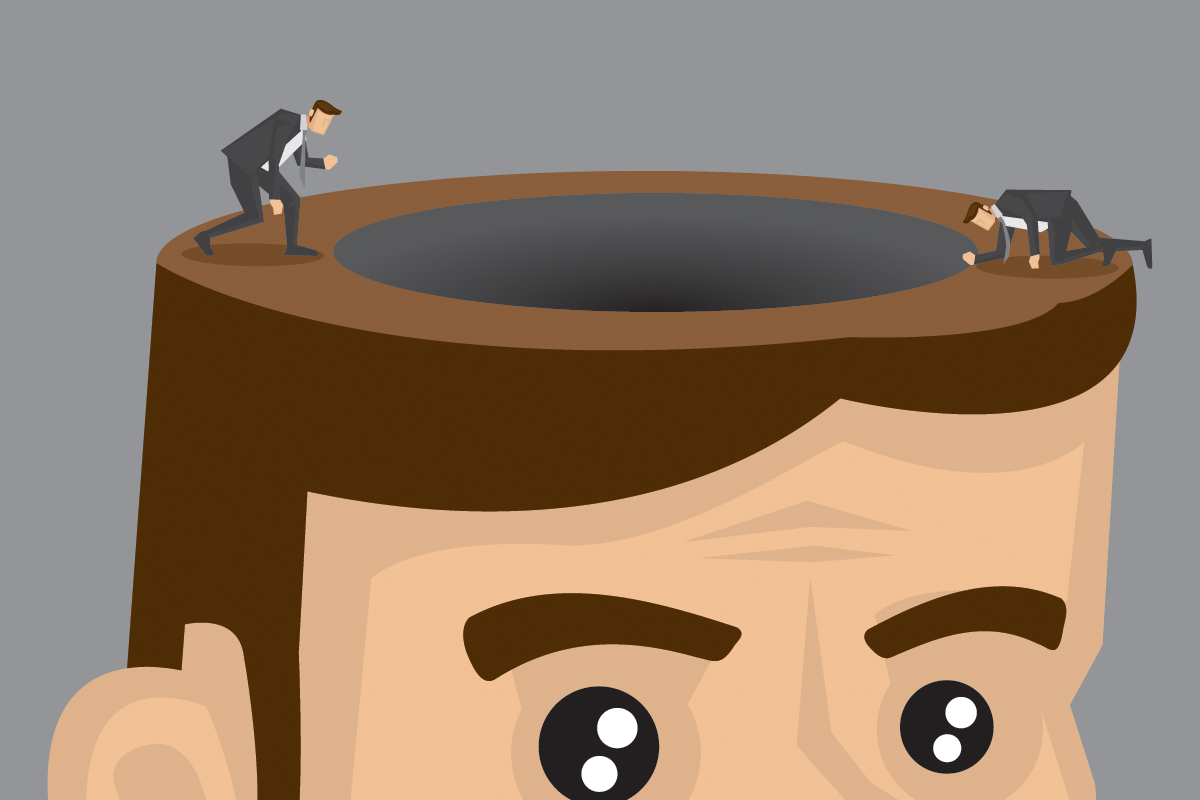Building Real Confidence

Want more confidence? Step right up! This technique will work very well. But it won’t work very quickly. But if you spend only a few minutes per night doing the recommendations you’ll learn here, you’ll soon learn to be much more socially confident.
No Faking It Till You Make It
This won’t require you do anything outside of your comfort zone. This will be a technique that slowly expands your comfort zone without ever having to go outside it. Most techniques that involve improving your social skills involving just sucking it up and doing it until it feels natural.
Cold Water Metaphor
An often used metaphor is about how you get into the water. If you wade in slowly, it’s fine until you get past your knees. Then there’s a few places that you just can’t ease into. The metaphor goes along to say the best way is to just jump into the water. Or another common metaphor is the band-aid. If you pull if off slowly, it hurts like crap. But if you rip it off, it will over before you know it.
Wrong Metaphor
However, if you use the wrong metaphor to describe an underlying and much more complicated process, the metaphor only sounds good. As a tool in behavior modification, metaphors suck. If you are only using metaphors conversationally, so everybody knows what you’re talking about, then they are fine. Since most metaphors used to describe social anxiety totally miss the mark, they are not useful behavior modification tools. Let’s see why.
After The Fact Thinking

Our brains are not the thinking, proactive tools we think they are. Some studies indicate that only 5% of our actions are done as a result of our thinking. Yep, you read that correctly. Only five percent of the time do we think about something, and then take action. The rest of the time, we act, and then notice we are acting, and then make up a story that allows us to pretend we are in charge.
Narrative Generation Device
These studies indicate that most of the time, we are only really watching ourselves as we interact with our environment. That five percent of the time when we think and then take action are only when we feel reasonably safe. Social situations don’t account for this.
Better Safe Than Sorry
Most of the time, our brains are acting (or rather reacting) according to a very ancient set of programming that says if there is any chance we might mess up, we’d better stay put. Our brains are lighting fast, but pretty inaccurate. Based on our ancient history, being wrong most of the time is perfectly fine. It’s that one time that we aren’t wrong (out of ten or twenty) that we don’t do anything and don’t get killed that’s important.
Stranger Danger
We all have ancient programming that says strangers are dangerous. We split from chimps six million years ago. We only invented agriculture 10,000 years ago. That’s 5.98 million years out of 6.00 million years that we’ve only been around people we know. Our instincts make us feel very comfortable around people we know, and very sketchy around people we don’t.
As far as our ancient (and very slow changing) instincts feel, people we are comfortable around (family, childhood friends) is the way we are supposed to feel. When we strangers, we automatically switch into potential danger mode.
Combination Equals Social Anxiety

When you combine the natural stranger danger programming with our “better safe than sorry” neural processing, you get the very natural feeling of social anxiety when we are around strangers. But wait! There’s more! It gets worse…
Reference Whenever Possible
Whenever we are in an unfamiliar situation, our brain hates to have to learn by trial and error. That takes up a lot of processor time. So what our brains do instead is quickly check our history to find any familiar memories. And guess what? Most of us have plenty of memories of us standing safely with our backs up against the wall and coming out just fine. So this reinforces the wallflower strategy when in social situations.
Grab Your Balls And Make A Move – Worst Advice Ever!
The common advice is just to screw up your courage and make a move sounds good, but in theory is the last thing you should do. Why? When you force yourself to do something that makes you nervous, it’s will also force your fight or flight response to kick in. This will decrease your social acuity and make it less likely you’ll have any amount of success. Few people are socially successful if they are really nervous. Sure it happens, but keep reading.
Adding More Negative Memories
Let’s say you forced yourself to approach strangers when you are nervous, in hopes of finally getting over your social anxiety. Let’s say you had an astronomical success rate of 20%. Meaning one out of every five person you approached you had a wonderful conversation that ended with you exchanging numbers. Fantastic, right? Not so fast!
This twenty percent success rate is also equal to a eighty percent failure rate. While it’s nice to be positive, you are putting those numbers into your better-safe-than-sorry brain. So when you are in later situations, think of what you’ve trained into you brain.
One, that approaching people requires courage and confidence to overcome your social fears. Two, that you have an eighty percent failure rate. This means unless you consciously push yourself forward each and every time past that naturally occurring social anxiety, it will still be there in the forefront of your brain.
Much Better Way

Luckily, you don’t have to feel the fear and do it anyway or fake it till you make it. There is a much easier way that will slowly build up the feeling of having natural confidence that won’t require any willpower whatsoever.
Main Drawback
The only drawback to this technique is it will take a lot of time, and a lot of consistent effort. This won’t be involving anything other than some targeted journaling that might take a few weeks. This isn’t easy by any stretch. But the main benefit is once you get past the tipping point of feeling naturally social and outgoing, you’ll never look back. It will be permanent.
Build Up The Benefits
While it is very tempting to believe in a magical instant cure for social anxiety, so far nobody’s found it. Even the most advanced drugs that intend to decrease social anxiety have all kinds of unintended and potentially dangerous side effects. Because this technique will take time and effort, let’s take some time imagining the benefits.
Better Social Life
If you see somebody interesting, you’ll naturally walk up and start a conversation with ease. You won’t to think about it. It will be something that just happens. It will feel as natural as picking up a twenty-dollar bill you find lying on the sidewalk.
More Money
No matter what kind of career you have or want, having fearless social skills will make it easier. Unless you are going to be a one man show in the middle of the wilderness, most jobs like people who can get along well with others. Being able to fearlessly talk to people from all walks of life will make you a very valuable employee to any organization.
More Fun
Right now, when you think of having fun, your creative imagination is artificially constrained by what it thinks you’ll be comfortable doing. This is also true of how you may imagine different ways of making money. But once you enlarge your social comfort zone, what you imagine is possible will also increase.
More Sex

Yep!
Let’s Get To It
Done correctly, this exercise will change the memories that you reference in social situations. Now, when you look back through your brain to decide how you should feel in social situations (this happens automatically and in less than a second) you reference social situations that you stayed safe, or ones where you tried something and it didn’t work.
This technique will involve purposely finding and strengthening existing memories in your brain of social success. They are there. You might not be able to think of them now, but they are there. We have to just find them, remember them, strengthen them, and repeat the process.
Tipping Point
The more you do this exercise, the more you’ll start to naturally and automatically remember memories that fill you with social confidence. The tipping point will come when you start feeling naturally confident in social situations without even noticing. When you start to feel normal when you start conversations with interesting strangers.
Getting Started
The first step is to admit that you want to be more socially confident. This isn’t as easy as it sounds. We have a lot of biases, and many of them exist to protect our ego. It’s common for people to be lacking in social confidence, but not wanting to admit it. We say things like:
“Yeah, I could be outgoing and talk to people, but I just don’t feel like it.”
Once you admit you would like to be more socially confident and outgoing that you are, the rest is easy.
Start A Confidence Journal

When you are in any situation, you will check your memory to see how to behave. So we need to find plenty of memories of you being socially confident. Just finding these memories isn’t enough. You need to recreate them, so they will be fresh in your mind. And when you recreate them, we’ll fill them with as much confidence as possible.
Start As Early As Possible
Find the earliest possible memory you can of you being socially confident. If you can remember being a little kid and running around screaming your head off, then use that. All you really need is just a glimmer of a memory. Once you’ve got that, spend at least five minutes rewriting it.
Step One
Write as many words as you can. Embellish as much as you can about how confident you felt. Keep the actions and details as accurately as you can. This won’t work if you make up some memories of you fighting off an alien invasion when you were in kindergarten! Find any memory with you doing something around other people. Write the events as accurately as you can. Make the emotions as strongly confident as you can. Write the event to reflect your feelings of confidence.
Step Two
After you’ve written the event out, close your eyes and relive it a few times. See it from your own eyes, and feel as much confidence as you can. See again from a third person perspective, and notice how all the other people, kids and adults, are impressed with your confidence.
Step Three
Repeat this every single day. This is the boring and tedious part. It’s easy, as in you don’t need to ever leave your comfort zone, but it is pretty boring! But keep at it, you’ll eventually get to a tipping point. The next day, find another memory from when you were very young. Do this every day. Write it out, add in some feelings of confidence, and relive it from various perspectives.
Step Four
Do this until you start to naturally feel confident when your out and about doing your regular thing. Give this plenty of time. Don’t rush it, don’t force it and by all means do not fake it. Believe it or not, you’ll start to act more confidently, but chances are you won’t notice it. This is what happens when you increase genuine confidence. Since your new level of confidence feels just as normal as your old level of confidence, you might not even notice.
Journal Your Daily Activities

Keep track of anything you do during that can be perceived of genuine confidence. Things that would objectively be considered socially confident behavior. Things like looking people in the eye when you are speaking to them. Starting conversations with strangers. Participating more in conversations. Speaking up in meetings at work. Even noticing that your friends are starting to seem a little boring.
Double Journaling
Once the journaling of old behavior becomes familiar (and you might even look forward to doing it) begin journaling on things you did that day that could be construed as socially confident behavior. Even something simple as talking to somebody in the elevator. When you journal that even later in the day, add a little bit more confidence than you actually felt.
The Tipping Point
When you begin, consider checking in with yourself how confident you feel you genuinely are, compared to how confident you wish you were. Before you begin the journaling process, consider coming up a few answers to this sentence stem:
If I were as confident as I wanted to be, I could…
And write down as many reasonable answers as you can. Be sure to keep this private, so you don’t have to worry about people judging you. But be completely honest. If you had absolute total confidence, and absolutely zero social fear, what would you be able to do? Dream big. Once you’ve got those targets written down, keep going until you are easily able to do the things on your list.
Ideally, you’ll totally forget about the things on the list. Then you’ll remember to check it one day and notice that you are doing all those things every day. This is what genuine confidence feels like. Totally normal behavior.
Many Tipping Points
There will be many of these. The first one will come when you have too many memories to write down. When you first start this process, you might have to think for a while before you come up with a suitable memory. But pretty soon, while you’re writing out one memory, you’ll think of a bunch more. You can write these on a list of memories to journal about later, or you can write about more than one early memory per day. The first tipping point will come when you realize that you’ve got way too many memories to write out.
Another tipping point will be when you start doing things that you realize you probably wouldn’t have been able to do earlier. Things like making flirty jokes to the cute barista, or acting much more confident with your coworkers, or even telling people, “No,” when this was difficult before. When you start to notice a change in your objective behavior, you know you’re on your way.
Last Tipping Point

Consider that the last tipping point will come when you feel you’ve done enough journaling about early memories, and all you need is your daily behavior. When you can reasonably sit down at the end of the day, journal something you did that day as proof of your confidence. When that happens, just continue this process as long as you can. Take a confident thing you did, and write it out so it is just a little bit more confident when you relive it later in the day.
Never Too Much Confident
You will never have too much genuine confidence. The more socially confident you are, the more you can genuinely interact with others. Being openly social will lead to many unexpected reward. You owe the world your true self. Begin this exercise today, get out there and have some fun!
Learn More

Mind Persuasion has many book and courses filled with exercises and subliminal programming sessions designed you to easily get more out of life with much less effort.
Mind Persuasion Books
Mind Persuasion Courses